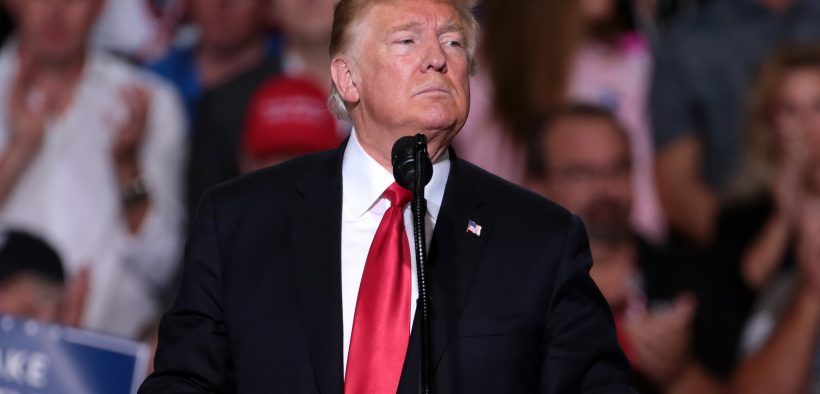Trump Administration Expands Travel Ban

The countries included in Trump’s extended travel ban include Nigeria, Eritrea, Burma, Kyrgyzstan, Tanzania and Sudan.
The White House announced on Saturday that six new countries would be added to the list of those whose citizens are no longer eligible for certain U.S. visas. Nigeria, Eritrea, Burma, and Kyrgyzstan will now have suspended immigration, except for special immigrants “whose eligibility is based on having provided assistance to the United States Government.” Those from Tanzania and Sudan will no longer be allowed to come into the U.S. as Diversity Immigrants, what is generally known as the green card program. People from these countries can still travel to the U.S. on business, tourist, and student visas.
The Past and Future of the Travel Ban
During his presidential campaign in 2016 Trump issued and subsequently read the statement “Donald J. Trump is calling for a total and complete shutdown of Muslims entering the United States until our country’s representatives can figure out what the hell is going on!” Excluding people from entering the U.S. based on religion is clearly against both the letter and principal of the constitution, and a range of other anti-discrimination laws. After becoming the official Republican Presidential nominee Trump’s message on the issue shifted to calling for “extreme vetting” of people from several majority Muslim countries. In March of 2017 shortly after taking office Trump used an executive order to ban nationals from Syria, Yemen, Iran, Iraq, Libya, Sudan, and Somalia from entering the U.S. it also canceled the Syrian refugee program.
Because Trump’s campaign language and the discriminatory origin of the ban it was challenged several times in court and went through several versions before the current iteration. North Korea and Venezuela were eventually added, and Chad was included in one version, but made changes to their passport system and were taken off the list. Those from the listed countries are not strictly barred from entering the U.S., but face restrictions on the types of visas they can get. As is the case with the new additions to the list the reasons and the level of restrictions vary by country.
In April 2019 the Democrats introduced H.R. 2214, the No Ban Act, which “ imposes limitations on the President’s authority to suspend or restrict aliens from entering the United States and terminates certain presidential actions implementing such restrictions.” Shortly after the additions to the ban were announced last week House Speaker Nancy Pelosi (D-CA) announced that the House Judiciary Committee would bring the No Ban Act to the floor for a vote. It will likely pass there but it stands virtually no chance of passing the Republican controlled Senate.
The U.S. and Nigeria
Nigeria’s inclusion on the list has sparked some backlash there and questions about how this might impact the long-term relationship between the two nations. Nigeria is Africa’s largest country. It’s also Africa’s biggest population, and with a GDP over $400 billion it’s Africa’s biggest economy and the 13th biggest oil producer in the world. The U.S is Nigeria’s largest trading partner. According to the U.S. State Department,
“At $2.2 billion in 2017, Nigeria is the second largest U.S. export destination in Sub-Saharan Africa. The United States and Nigeria have a bilateral trade and investment framework agreement. In 2017, the two-way trade in goods between the United States and Nigeria totaled over $9 billion. U.S. exports to Nigeria include wheat, vehicles, machinery, kerosene, lubricating oils, jet fuel, civilian aircraft, and plastics. Nigerian exports to the United States included crude oil, cocoa, cashew nuts, and animal feed.”
Just a few days into the new travel restrictions it’s unclear how the ban will impact the relationship between the two countries. If it does cause negative fallout it could have big economic impacts and also consequences for the U.S.’s efforts to counter Chinese influence in Africa.
Nigerian President Muhammadu Buhari has already set up a committee to work with Interpol and the U.S. state department so there is a chance that Nigeria may get off the list fairly soon.
Family Separations
The new restrictions are already impacting those who had planned to join family members already in the U.S. Because the restrictions take effect as soon as they’re issued even those who were already in the process of immigrating are no longer eligible. Conservative think tank The Cato institute estimates that the existing travel ban has already resulted in over 15,000 separations of American citizens from either their spouses or children. With the inclusions of these six new countries that number is likely to rise rapidly.







